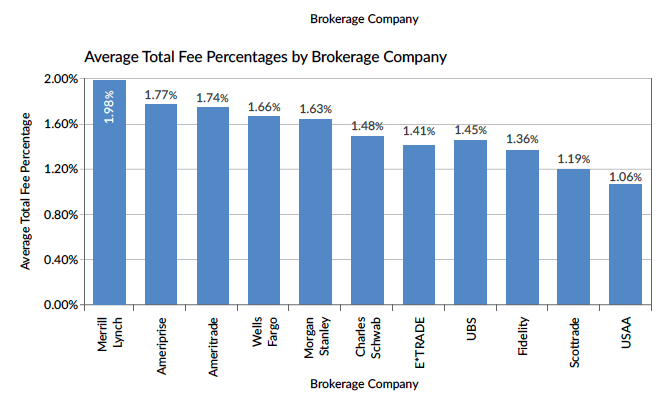[sgmb id=”2″]
The Republicans have never hid their distain for regulation and now with the surprise victory of Donald Trump and his arch conservative vice president, the simmering Republican distain for reversing all things from the 1930’s New Deal will are going to be reviewed and partially reversed . This will take time, but the anti-investor, Republican, neo-conservative, anti-federal, free-market political impetus is now a reality.
This also means that any professional financial advisor who does not acknowledge this new reality into their daily practices will show their more astute clients that they are seriously out of touch with reality.
 This means pre-retirement financial preparations have to include potential changes to Medicare and Medicaid, including the sad fact that many Medicare recipients will now be forced to pay bills from their hospitals that Medicare previously covered. This will mean a return to medical-related bankruptcies for millions of retirees.
This means pre-retirement financial preparations have to include potential changes to Medicare and Medicaid, including the sad fact that many Medicare recipients will now be forced to pay bills from their hospitals that Medicare previously covered. This will mean a return to medical-related bankruptcies for millions of retirees.
The phobic response to the Affordable Care Act will also mean higher health care costs, or none at all, for millions of Americans. Again, this could take years to repeal, but the sword is hanging over the heads of millions of people approaching retirement and will cut into retirement savings in the event of a serious illness or health issue.
Then, we have the now ancient Republican attacks against regulation, pushes for privatizing Social Security and the imposition of high fees and expenses on unsuspecting investors. This also include repeal or curtailment of the breakthrough U.S. Department of Labor’s (DOL) fiduciary standard which was designed to give average investors an even break by having well-trained, and often unethical retirement professionals, revealing which funds would be the cheapest for their portfolios.
Even after a decade of debate on the fiduciary standard issue and its importance to uninformed plan participants, “plan sponsors, as a whole, are unaware that participants pay disparate fees, and service providers, particularly recordkeepers that receive revenue-sharing payments, are not going to address it, experts say,” according to an article in Plan Sponsor by reporter Lee Barney.
Yet, while the Republicans make a concerted effort to repeal the fiduciary standard under the guidance of their well-paid professional lobbyists, ERISA law expert Fred Reish said “while there are no requirements to charge equitable fees, in Field Assistance Bulletin (FAB) 2003-03, the DOL indicated that allocating plan expenses is a fiduciary decision that requires fiduciaries to act prudently,” Reish, of Drinker Biddle & Reath, said in the same Plan Sponsor article cited earlier. “Whatever allocation method is used, the failure by fiduciaries to engage in a prudent process to consider an equitable method of allocation of plan costs and revenue sharing would be imprudent and a breach of fiduciary duty.”
Fund Fees Are Still Critical
Similarly, a white paper, “Deciding what is Reasonable: Assessing Fees Using Value and Outcomes,” from TIAA-CREF reiterated that reviewing how fees are charged to participants is a best practice sponsors need to consider.
Charging excessive fees and expensive, revenue sharing, and employing expensive, national wholesaler selling networks to sell commodity-type mutual funds to retirees from an employer’s meeting rooms is an insult to employees and a violation of the employer’s duty to do what is in the best interests of their employees while they are in the workplace.
The problem with selling inappropriate, expensive mutual funds and other retirement-related  investments from the workplace human resources facilities not only hurts current working employees, but it could send them on a misguided path for decades after they enter retirement at the same time when their earning capacity approaches zero.
investments from the workplace human resources facilities not only hurts current working employees, but it could send them on a misguided path for decades after they enter retirement at the same time when their earning capacity approaches zero.
As for Millennials and younger people who are still facing decades of working, a new study from Oxford University finds that 47% of current jobs will not exist in just 25 years. This means more job dislocations, the need for more schooling and re-education for find jobs that offer comparable salaries and benefits in an increasingly automated age.
Those Trump supporters who want the old factory jobs back that they lost years ago must have suffered from a frozen memory because if those jobs ever came back, they would be almost completely automated, and need fewer, more highly-trained workers. It would not be “happy days are here again” since automation guarantees faster obsolescence and more job disruptions. All this spells huge gaps in the ability to save for retirement, compounded by greater out-of-pocket expenses for medical bills, tuition and potential cuts in Social Security.
So while it’s understandable that financial professionals don’t discuss politics and bad news, they look very foolish if they meet with a client in 2017 and pretend they don’t know what’s looming on the horizon. Despite all the old, tired talk about the benefits of diversification, hot new funds, risk management, the benefits of expensive annuities, and saving more, an honest, pro-client retirement planning professional will have to publicly admit that the retirement planning future has never looked this bleak.











